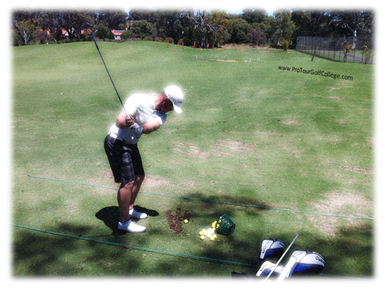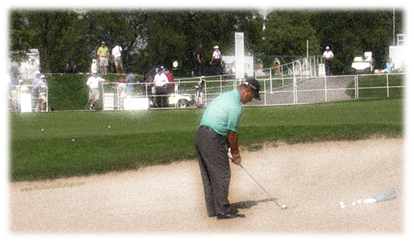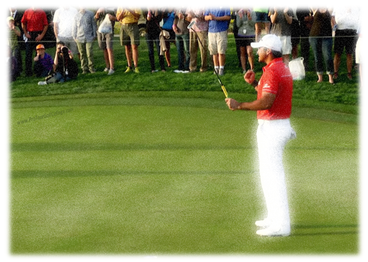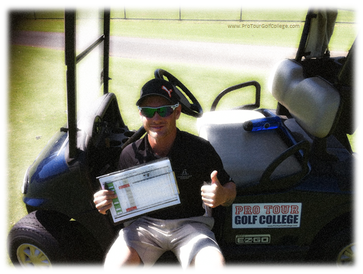 With the New Year upon us I thought it would be helpful to share with you a simple easy to remember acrostic to remind you of the important factors you should never take you eye off when you practice to improve your golf. What is an acrostic? When I looked up the definition of an acrostic in the dictionary it suggested that it can be a poem, a word puzzle, or some other type of word composition in which certain letters in each line form a word or words. Like this example of an acrostic that spells G.O.L.F. from The Golfing Machine system. Geometrically Oriented Linear Force Using word compositions like this is a fun and helpful learning strategy that assists you in remembering important facts—or any type of information that you wish to remember to help you in some way. In today's article the acrostic we are sharing with you is D.E.S.T.I.N.Y. which seems appropriate at this time of the year and also because it describes a goal, outcome, intention, or something you wish to achieve with your golf in the future. D.E.S.T.I.N.Y. will help you to develop better golf practice processes that you can use to achieve your desired outcomes sooner. Use the D.E.S.T.I.N.Y. process to help you to refine the way you go about working on your game. You will achieve better results from your practice effort in the New Year by using this simple and easy to remember approach to golf improvement.  Deliberate Practice Approach to Golf Improvement The quality of your golf practice is just as important as the quantity of your golf practice. We have seen many golfers who have spent countless hours hitting golf shots without much thought about the longer term consequences of their actions. Very little quality, just lots of mindless repetition. The aim of the Deliberate Practice approach to improvement is to not just to improve the skills you already possess, but to extend the range and reach of your newly developing skills over the long term. Deliberate Practice is a unique approach to practicing your golf skills with the clear and unmistakable goal of improving your golf performance first and foremost, as opposed to just hitting lots of practice balls. How do you do this? An important part of the deliberate practice approach is for you to constantly monitor your results consciously and consistently, then correct or adjust - ideally with feedback and assistance from a competent and experienced golf instructor. (More on this later) Deliberate Practice drives your golf practice performance with a design for improvement approach rather than just practicing and hoping that somehow and in some way you will improve. (More on deliberate practice here)  Efficient Use of Mental Energy Rather Than Time The currency of high performance golf practice is the efficient management of your mental energy within your defined allocation of time on the practice ground. How can you improve your golf skills if you are fatigued and weary and your level of focus is poor? You can't. You responsibility is to maintain a very high level of focus and commitment as you practice your golf skills, and the best way to do this is to reduce the volume of golf balls you hit but at the same time increase the intensity of your application of mental energy. Remember your mind will give up well before your body does so the idea is to practice with smaller quantities or batches of balls with a very high level of focus. Mental fatigue should be more of a concern to you that physical fatigue. When you compete you will be challenged physically, but you must hit your shots with a rock-solid mental process that should never break down under trying conditions. Hit sets of 10 golf shots with your full attention of your specific goal, and with the attitude that every shot is important, and after each set of golf shots just take a short mental break to recover. If you practice for 60 minutes then make sure that you gain more from the experience mentally than you do physically. Think of your practice effort over time as a wave pattern that has a low point and a high point. Your job is to peak your attention for 10 individual shots (10 very precise pre-shot routines) and then relax your attention to recover adequately before the next set. When you manage your mental energy investment within each set of 10 shots, then you'll easily manage your physical energy requirements.  Self Control and Emotional Regulation One of the consistent challenges that you will face as you develop your golf skills and confidence is the managing of your emotions along the way to a lower golf score average. Your emotional state will significantly influence the quality of your golf shots, your golf score, and it can also influence your future performances depending on how you manage them. This requires that you develop extraordinary mental discipline and resolve around emotional management which means that you understand your different emotional states and the link between your feelings and how you perform. The key to understanding your emotional awareness is that you recognize your emotions and the affects they have on your game, especially when you are practicing. You must learn to manage upsetting emotions and the reactive impulses that result from them. When you practice you must manage your impulsive feelings that will derail your confidence and put you into negative states. If you don't manage your emotional state when you practice then you've got no chance of managing them in the cauldron of competition. You need to learn to stay composed and level-headed in the most challenging moments. You do this by stretching yourself in practice by working over and over on shots that push your skill level to its limit without it breaking. By applying pressure on your skills in practice situations, and then managing it competently, you will find that you can mange your feelings when you are struggling on the golf course. Self control and emotional regulation will give you the ability to bounce back from set-backs with renewed determination and help you to produce better scores on your toughest days.  Track, Test, Measure and Manage Your Practice Effort How do you design your golf practice plan to enhance your potential? This is one of the most important questions in elite golfer development. In our approach to student development at Pro Tour Golf College we do it with four simple steps;
From the data we collect over the 10 week period of one of our Pro Tour Golf College semesters we can more easily determine the weaker to stronger skills of our students and how these weaker skills influence higher golf scores in tournaments. From here we can design a relevant and progressive practice plan built around improving their weakest-most important golf skills that lead them to lowering their competitive score average. By approaching practice this way we take a lot of the guesswork out of designing the golf practice process. We find that practice design is one of the least understood areas of golf skills development. Basically when you track, test, measure and manage your practice effort you are simply monitoring how you are performing on a daily basis and then determining what you need to improve as a motive for writing lower scores on your score card. We do this with the help of the Elite Golfer Improvement System (E.G.I.S) program which we designed to help our students through this process in simple step-by-step way. You should keep a diary from the start of the New Year to track all the practice you perform from day to day, and week to week, and although this is not a new idea, this approach will help you to practice more effectively.
By testing your key golf skills on at least a monthly basis you will identify the weak golf skills that are holding your game back, and from there you can go about designing a better practice process to manage the change required to improve the weak skills and turn them into strong skills. Next week we'll continue with our D.E.S.T.I.N.Y. golf practice process with the final three letters in the acrostic I.N.Y. See you then. Lawrie Montague and David Milne - Pro Tour Golf College Your Success On Tour is Our Business Comments are closed.
|
Archives
June 2019
|
Proudly Supported By
Copyright © 2011 - 2018 Pro Tour Golf College
Website Managed By Golf Performance Media
All Rights Reserved
Website Managed By Golf Performance Media
All Rights Reserved



 RSS Feed
RSS Feed



